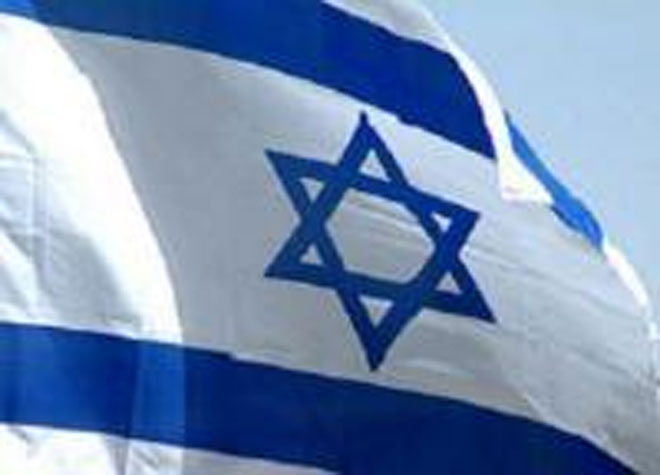Azerbaijan, Baku, May 6 / Trend U. Sadikhova /
Persistent calls of Arab countries to the international community to verify the alleged Israeli nuclear potential will not force Israel to join the Treaty on the Non-Proliferation of Nuclear Weapons (NPT).
Followed by Egypt and Turkey, the EU supreme chairman on foreign policy and security Catherine Ashton stated about the need for Middle East to turn into nuclear free zone, according to the NPT resolution of 1995 at a conference on the implementation of the NPT, which opened in New York, RIA Novosti agency reported.
Speaking about the prospects of creating the nuclear free zone, Ashton did not name Israel as a direct obstacle to the realization of this idea, because of the refusal to participate in the NPT. But she made clear that the nuclear-free zone in the region should be established.
The agency wrote that the Arab countries and the Non-Aligned Movement are planning to include the call for a nuclear-free zone in the Middle East in the final declaration of the NPT Conference in New York, which runs until May 28. It can cause an objection on the part of Israel's ally - the United States.
In an interview with U.S media, Egyptian Foreign Minister Ahmed Aboul Gheit said about the need to exert equal pressure on Iran and Israel to cleanse the Middle East from nuclear weapons and call for Israel to execute resolutions on the NPT. Besides Israel, the NPT participants, opened for signature in 1968, are not the Democratic-People's Republic of Korea, India and Pakistan.
Possible existence of Israel's 200 warheads and the lack of the IAEA's control on nuclear reactor in the Israeli town of Dimona are the main concern of Arab countries.
But experts doubt that this pressure will force Israel to become a participant of the NPT in the nearest future.
Israeli Former Deputy National Security Advisor Charles Freilich believes that the position of Egypt is aimed to remove concern in relation to alleged Israeli nuclear potential. The Iranian nuclear program, in fact, has no relation to this issue. Egypt sees its resolving in revealing Israeli alleged nuclear potential.
"I think that Israel's position is reasonable. Israel wants to turn the Middle East into a nuclear-free zone, if there is peace with all neighbors, and if all [countries of the region] refuse from weapons of mass destruction, not only nuclear," Harvard University John F. Kennedy Program "International Security" Senior Research Fellow, Freilish told Trend by e-mail.
According to the analyst, Egyptian officials' call for Israel to publish its alleged nuclear potential is actually aimed to a diplomatic advantage, but not permission of the Iranian nuclear program in the region. The West and the U.S. expect that it can lead to creation of nuclear weapons by Tehran.
U.S expert on Middle East security Jalil Roshandel doubts that the Egyptian proposal to solve the Iranian problem through discussions on possible Israeli potential, will give results, on the contrary, it will exacerbate it.
Iran's progress in the development of nuclear program is a good reason to give the arguments against a possible Israeli nuclear potential. It is used as a lever of pressure on the international community and the U.S., Roshandel said.
However, Israel is unlikely to cooperate with the IAEA or join the NPT.
"If you look from Israeli point of view, they prefer to keep their nuclear capability in complete ambiguity because by keep it ambiguous they never admit that they have such a capability and in the shadow of ambiguity they some how got the reputation that they are strong nuclear power," Roshandel told Trend.
Arab countries, including Egypt that seeks to develop its own nuclear program, are outraged. If Israel is not responsible, why veto is imposed on nuclear potential of other countries in the region, such as Iran, U.S analyst on weapons of mass destruction said. It gives trumps to non-nuclear countries in the region or those who have limited nuclear potentialities, like Iran, to pressure the international community and call for to bring Israel to account, he added.
Therefore, Roshandel believes that the Egyptian proposal constructive only if Israel will agree to join the NPT.
I consider implementation of the NPT resolution of 1995 as a way of turning the Middle East into a nuclear-free region. But today there is no progress in this process, Executive Director, Managing the Atom Project, Belfer Center for Science and International Affairs, Martin Malin said.
Arms control and regional security measures in the Middle East is the best way to proceed toward the implementation of the 1995 resolution.
The discussion of the nuclear issue (in the Middle East) should focus on the conditions under which states of the region would be willing to establish a nuclear free zone.
In my view, a constructive outcome from the NPT review conference would be an agreement that all states in the region begin a consultation on the organization of a conference dealing with regional peace and security issues, including the nuclear issue," Marlin told Trend via e-mail.






